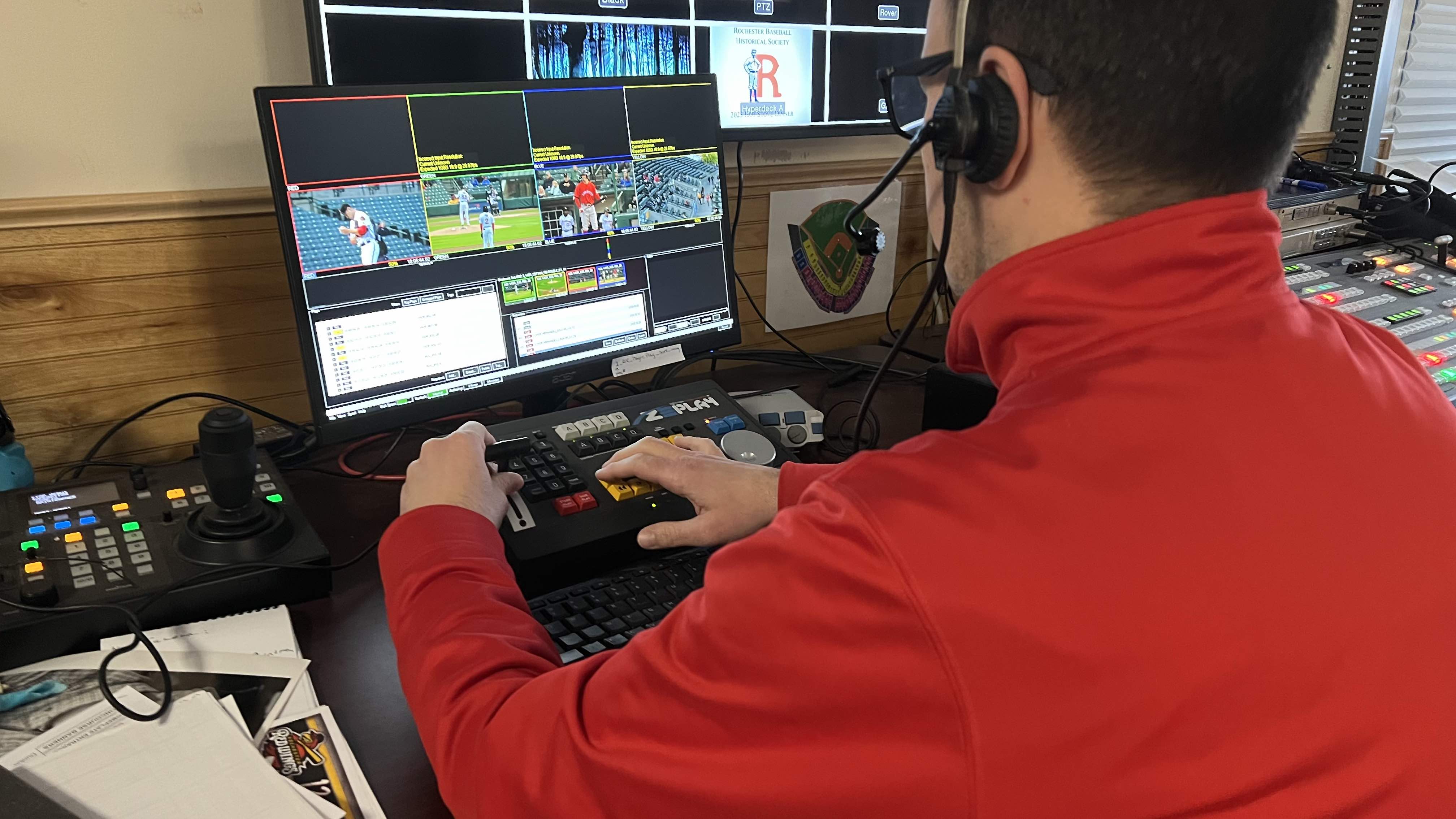Rochester Red Wings Baseball Updates Zeplay Hardware and Software
The update simplifies content sharing and speeds up delivery of content

The professional video industry's #1 source for news, trends and product and tech information. Sign up below.
You are now subscribed
Your newsletter sign-up was successful
BLOOMINGTON, Minn.—Zeplay has announced that the Rochester Red Wings Baseball organization in Rochester, New York has implemented fresh technology updates for their Zeplay instant replay servers.
The latest hardware and software bring new technology improvements and operational efficiencies that optimize the in-venue and live streaming experience for fans, Zeplay reported.
The Triple-A Minor League Baseball Affiliate for the Washington Nationals has been a Zeplay customer for ten seasons.
“It has served us very well for 10 years,” explained John Blotzer, who joined the team as director of video production in June 2011 and implemented the system after he arrived. “This year, it was time to invest in a system upgrade that would bring us new production capabilities and freshen our approach, which includes an expansion of our video export capabilities.”
Currently, Blotzer and his team use Zeplay to deliver content for in-venue displays, streaming broadcasts on the MiLB.tv app, and local news organizations.
“We have four cameras in the field positioned on home plate, first base, third base and center field,” explained Blotzer. “We can take in video from any angle at any point, and show it on the live app stream, two large video boards, and closed-circuit televisions around the venue. We also provide replays to monitors that our official scorers have access to if they want to review a play to confirm if an error or wild pitch happened. Zeplay has always allowed us to cue up these different angles; with the latest upgrade, we can do it quicker and smoother, and with better precision.”
Zeplay’s current software also streamlines the ability to export files to multiple locations. “We will send game highlight clip packages to different news stations,” said Blotzer. “Our replay operator will cut the highlights of all scoring plays and other special plays, and the new software makes it easier to distribute the compressed files in the right formats to the right targets. That also makes it easier for the news organizations that need to download the content. The new software also allows us to add presets for exporting all these video files for faster content sharing.”
The professional video industry's #1 source for news, trends and product and tech information. Sign up below.
As for the replay operators, many learn Zeplay on the job.
“We always have new interns and operators for each season,” he said. “By the third or fourth inning of their first game, they feel ready to take control of Zeplay,” said Blotzer. “That starts with the basics of recording feeds, tagging plays and firing instant replays. Editing is less important since we don’t currently have a local broadcast TV presence, but even the more advanced Zeplay tools are quick to pick up. I have even put people from our marketing department at the controls on short notice if we are short-staffed.”
Blotzer adds that the built-in multiviewer is helpful not only to review and select angles for live replays, but also to help with production processes like color correction. “We never really expected that, but since our camera control station is right beside Zeplay and its visual content presentation is so clear, it helps our directors and producers ensure consistency across the production workflow. Zeplay is capturing all those color angles, so it gives us an excellent quality assurance platform.”
But for Blotzer, even with new advanced features and improvements and consistent ease of use, it really comes down to the fan experience. “We are getting replays on screens faster than ever with the new software,” he said. “The fans really enjoy watching the replays and how quickly we turn them around, and we even now have advertisers who sponsor the replays. And as Zeplay continues to improve the product, it will be a staple of our production workflow for years to come.”
George Winslow is the senior content producer for TV Tech. He has written about the television, media and technology industries for nearly 30 years for such publications as Broadcasting & Cable, Multichannel News and TV Tech. Over the years, he has edited a number of magazines, including Multichannel News International and World Screen, and moderated panels at such major industry events as NAB and MIP TV. He has published two books and dozens of encyclopedia articles on such subjects as the media, New York City history and economics.

